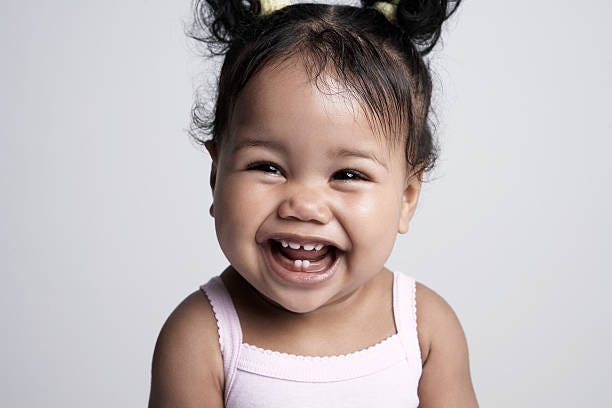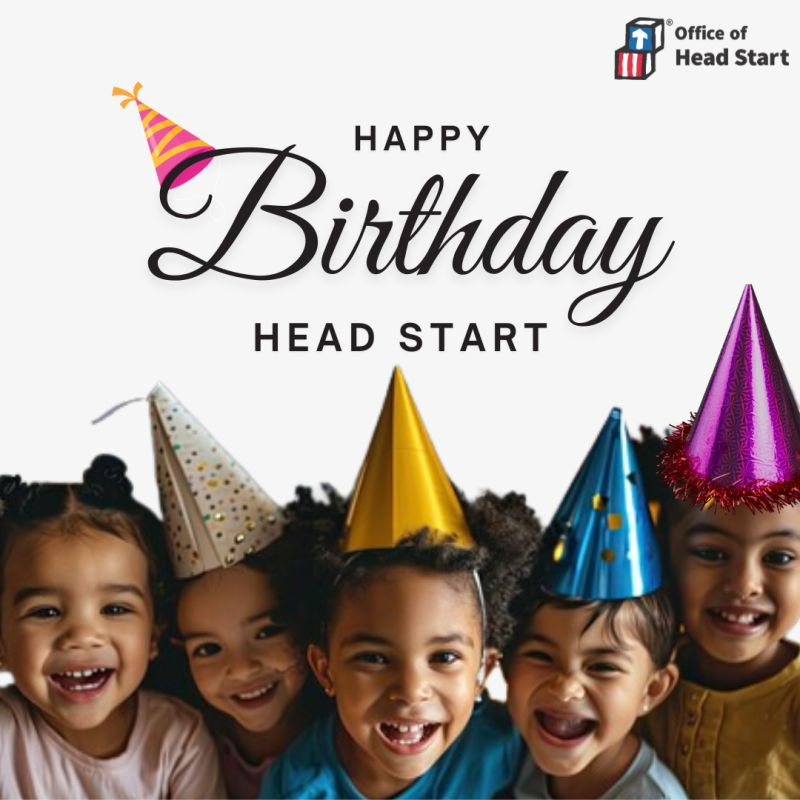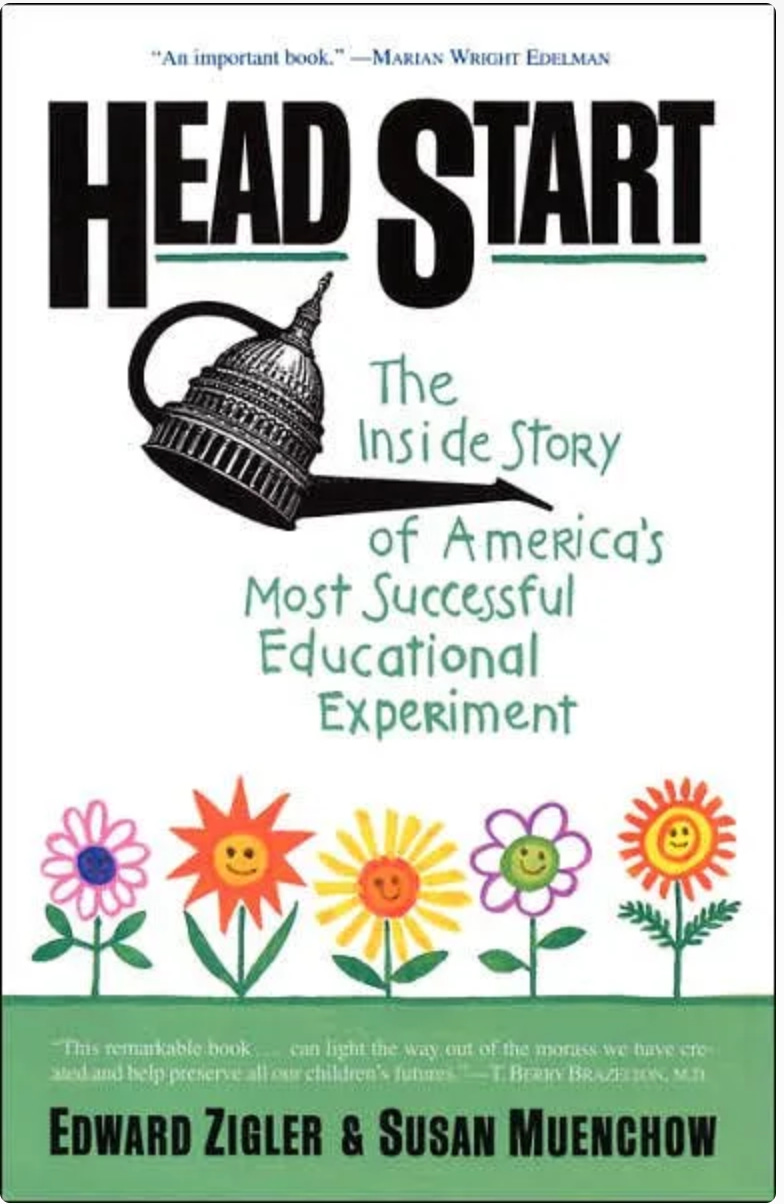Small Talks, No. 109
May 9, 2025
Welcome to the 109th edition of Small Talks.
I've been joyfully immersed in launching my book Love to Learn: The Transformative Power of Care and Connection in Early Education—a journey that’s taken me to over 30 podcasts and various book talks across the country. While it's been a whirlwind, I'm deeply committed to restarting Small Talks and reconnecting with this incredible community. The heart of this work has always been about sharing, reflecting, and growing together—and I’m excited to continue that with you.
Every Friday, I highlight 6 areas of weekly joys and reflections in early childhood and the whole family. Small Talks leverages my experience at the intersection of education, philanthropy, and impact investing. Enjoy!
What I’m celebrating -
Next week will mark the 60th anniversary of Head Start, a visionary initiative born in 1965 to give children from low-income families a better start in life through early education, health, nutrition, and family support. Since then, more than 37 million children and families have been served—each one a reminder of what’s possible when we invest in our youngest learners.
This anniversary invites us to honor the timeless wisdom of what’s already proven to work—whole-child, whole-family approaches rooted in care, connection, and community.
Head Start was radical in its time—and still is. It taught us that:
Learning begins long before kindergarten.
Families are essential partners.
Equity in education starts in early childhood.
To the educators, family advocates, bus drivers, cooks, and community leaders who have made Head Start a vibrant, loving force for 60 years: thank you.
Head Start faces an uncertain future amid proposed budget cuts (latest is that it may be included in the "skinny budget.") But like many of you, I believe there is simply too much good in Head Start to let it be diminished. Its legacy, impact, and promise are worth not only protecting, but growing—so that every child has the chance to thrive from the very beginning.
Here’s to 60 years of impact—and a future where every child gets the head start they deserve.
What I’m listening to -
The kids…
What I’m watching -
Today’s Show with Jennifer Garner
What I’m reading -
"Head Start: The Inside Story of America’s Most Successful Educational Experiment" by Edward Zigler and Susan Muenchow: A foundational read from one of the architects of the program
What I’m learning more deeply -
Let’s talk research. Some people (maybe you’ve heard them at dinner parties or policymaker panels) still claim: “Head Start doesn’t work—it fades out by third grade!”
That narrative is outdated, and the data tells a much richer—and more hopeful—story.
Yes, the 2009 Head Start Impact Study did find that some of the early academic gains leveled off in the early elementary years. But that’s not the full picture. In fact the research showed that children in Head Start did much better than their peers while they were in Head Start. When children leave a high-quality Head Start program and enter under-resourced, under-performing elementary schools, it’s not that Head Start failed. It’s that the support didn’t continue, and that context matters—a lot.
But when it does continue? That’s where the magic happens.
A 2022 study found that Head Start participation leads to significant long-term benefits, including higher high school graduation rates, better adult health, and increased earnings—especially when followed by strong elementary school environments.
Other longitudinal studies, like Deming’s research show that Head Start alumni are more likely to graduate from high school and college, and less likely to be incarcerated.
Research by Chloe Gibbs and Andrew Barr also find intergenerational effects of Head Start along the same lines of James Heckman work – the children of those who were exposed to Head Start saw reduced teen pregnancy and criminal engagement and increased educational attainment.
Recent research has highlighted what Alison Gopnik calls a ““sleeper effect” in early childhood education—gains that may appear to fade by third grade but reveal profound and lasting benefits over the long term.
Good summary of the research in Edweek here and from the National Head Start Association here.
One more wonky note: there were also some research design limitations to the Head Start Impact Study.
So no, Head Start is not just a preschool program. It’s a launchpad for life. And when we combine it with investments in high-quality K–12, community support, and family engagement, the impact doesn't fade—it multiplies.
Three quotes I’m pondering -
“If we don’t stand up for children, then we don’t stand for much.”
— Marian Wright Edelman, founder of the Children’s Defense Fund and early advocate of Head Start“Early childhood education is the key to the betterment of society.”
— Maria Montessori“There is no greater insight into the future than recognizing…when we invest in early childhood, we invest in our collective destiny.”
— James Heckman, Nobel Laureate economist
Feedback is a gift. Which part above is your favorite? What did I miss? What do you want more or less of? Other recommendations? Please kindly let me know. Thank to all of you who are sending me amazing suggestions.
If you enjoy this newsletter, please help spread the word by sharing with your friends, colleagues, and networks.
✨ Thanks for your help in spreading the word about my book "Love to Learn: The Transformative Power of Care and Connection in Early Education" with your community and spark conversations about how care, connection, and relational intelligence can transform education and unlock human potential. The book is now available for order. 📚❤️
Please stay safe and care for each other.
Isabelle





Wonderful to have Small Talks back in my inbox. The effectiveness of Head Start is a perfect topic to champion with its return. Thank you, Isabelle.